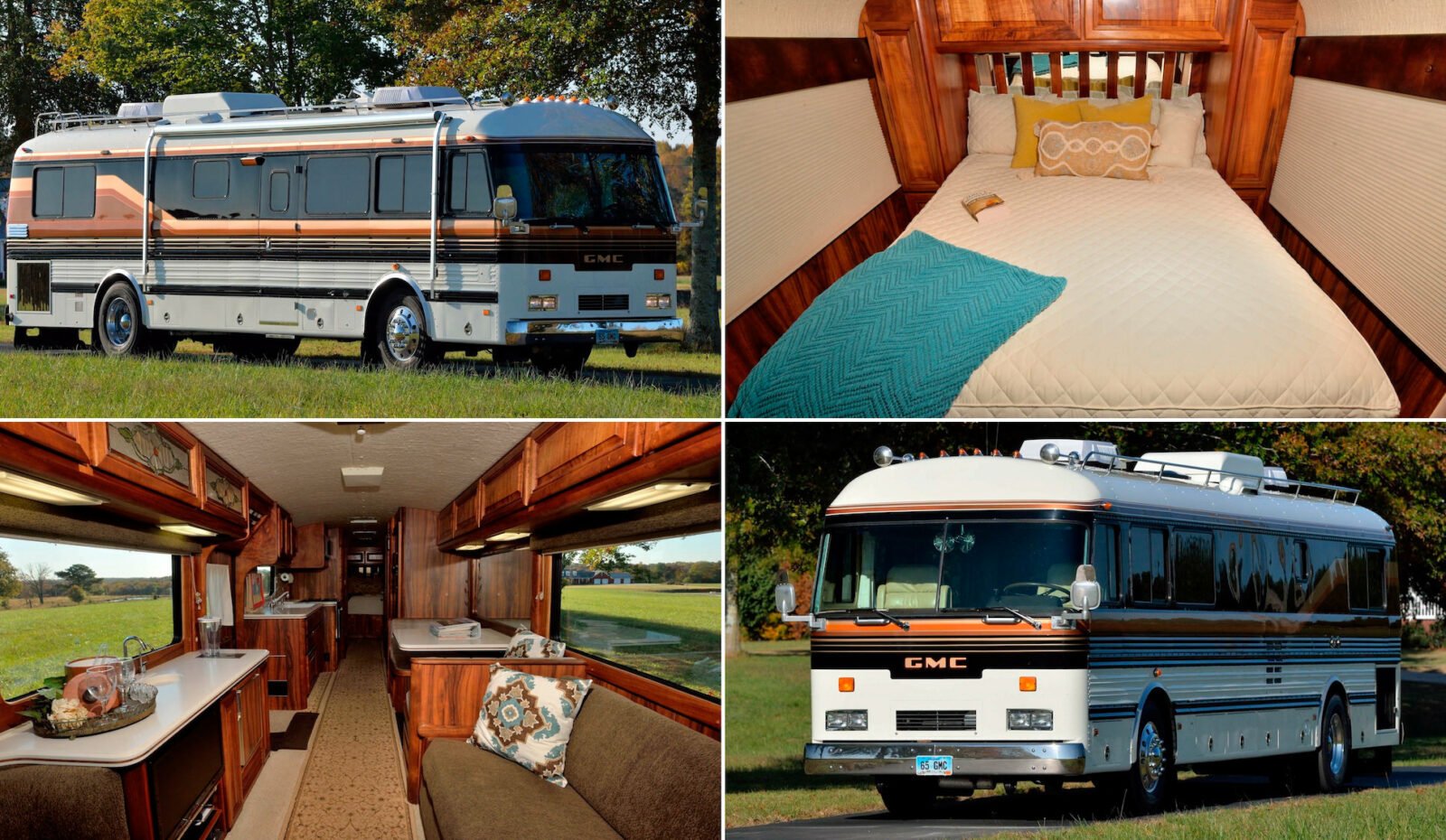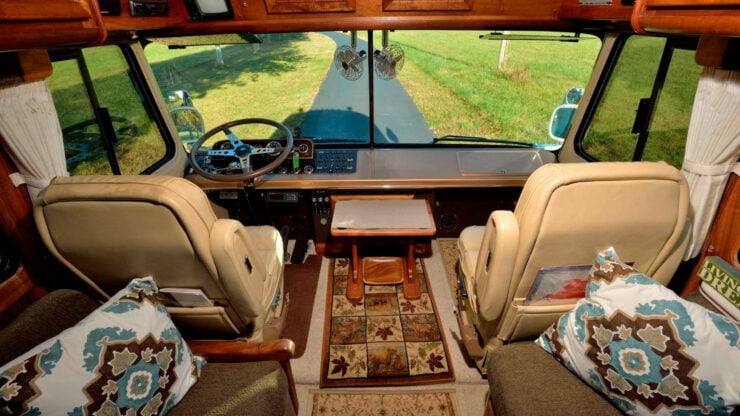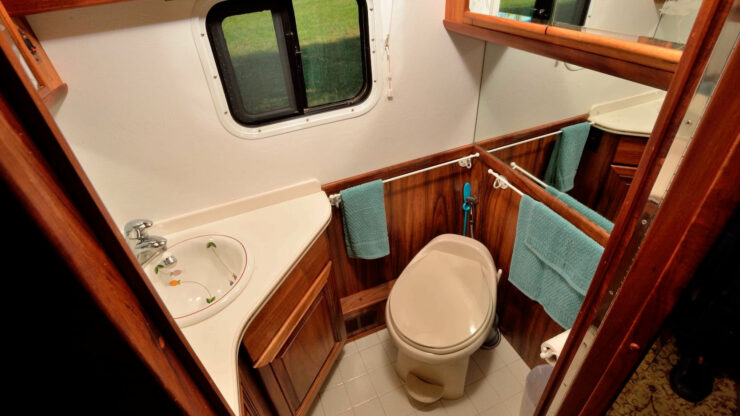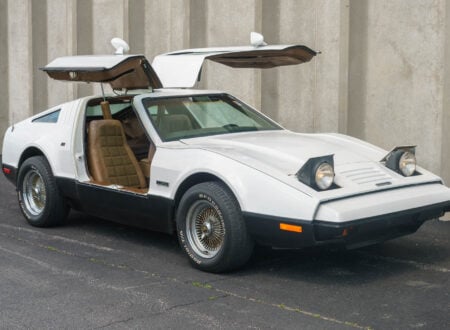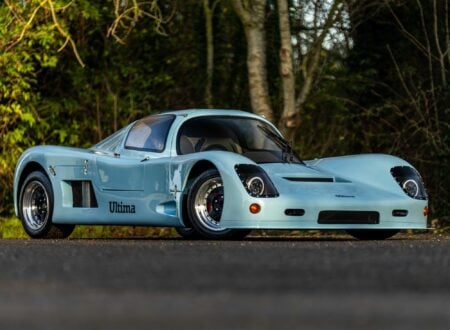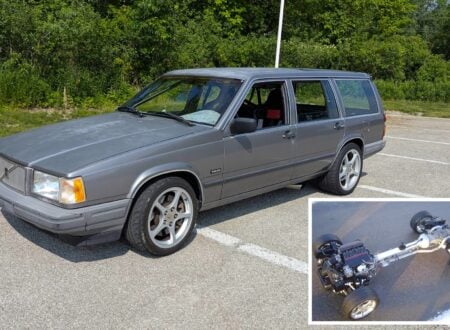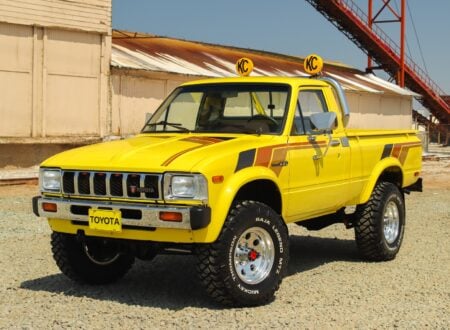This classic motorhome actually started life as a troop transport bus at Fort Ord Army Base on Monterey Bay in California in 1965. In this role it would doubtless have carried thousands of new GIs before their deployment to the Vietnam War.
In later years the bus suffered an engine failure and was sold off as army surplus. Fortunately it was bought by someone who replaced the engine and transmission before completely rebuilding the bus into a luxury, and now a decidedly retro, motorhome.
Fast Facts – A 1965 GMC Bus Motorhome
- This motorhome is based on a 1965 GMC Bus, specifically on the GM “New Look” bus that had been introduced in 1959 as an upgrade over the earlier GM Transit Bus that was retroactively named the “Old Look” bus.
- The GMC “Mew Look” Bus made use of an unusual stressed-skin monocoque construction that made do without a traditional chassis, this greatly helped to reduce weight and helped with fuel consumption.
- A wide variety of GMC Busses were made for a multitude of uses, from municipal transport and school buses to military transport and beyond.
- Over the course of production over 44,000 were built in total between 1959 and 1986.
A Brief History Of The Motorhome
There isn’t complete agreement on who built the first motorhome or when, but we do know that the first production motorhome was almost certainly the Touring Landau model offered by the Pierce-Arrow Motor Car Company in 1910.
The Touring Landau was a motorhome in every modern sense of the word, it offered an onboard toilet and ample storage for camping equipment. It’s worth remembering that in 1910 there were no highways and relatively few sealed roads, so any cross-country journey was likely to be an adventure – which is why the Touring Landau was developed.
In 1915 the concept of the motorhome exploded into the consciousness of many Americans thanks to the custom-built “Gypsy Van” belonging to the Conklin family, who departed from Huntington, New York on a cross-country camping trip.
The Gypsy Van had been built by Roland Conklin’s Gas-Electric Motor Bus Company. The adventures of the Conklin family as they headed to San Francisco were covered extensively in the newspapers of the day, including The New York Times.
By the 1920s the concept of the caravan or camper trailer had been well established, and by the 1930s companies like Bowlus and Airstream were making their iconic all-aluminum trailers that took their inspiration from the world of aviation.
After WWII the concept of the RV exploded in popularity, the Winnebago company was founded in 1958 and by the 1970s America’s biggest automaker, General Motors, had the GMC Motorhome in production.
Today the RV industry posts sales figures in the billions of dollars annually, many Americans had holidays in RVs as kids and when they have kids of their own they repeat the experience.
The 1965 GMC Bus Motorhome Shown Here
The bus you see started life humbly, as noted in the introduction it was used for hauling troops around on Fort Ord Army Base until one day its engine blew and it was sold off as surplus.
It was then bought by a new owner who embarked on a completed rebuild and refit. The bus was extensively modified for its new life as a home on wheels.
It’s now powered by an 8.9 liter Cummins ISL-350 six-cylinder crate engine mated to an Allison 6-speed automatic transmission. It’s also fitted with electronically-controlled cruise control, a leveling system, and Alcoa polished aluminum wheels with Michelin tires.
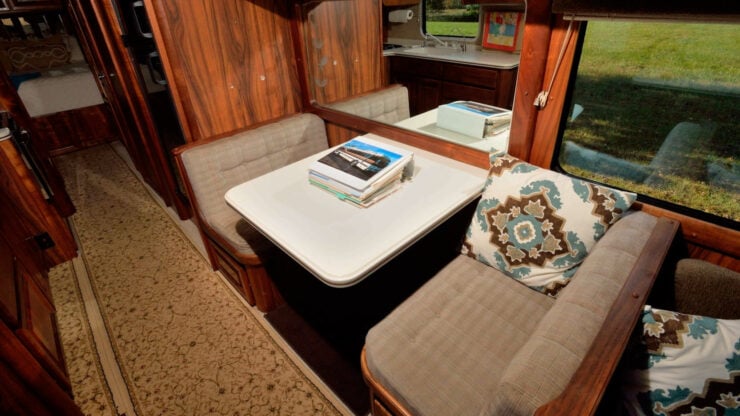

Inside you’ll find beautiful Koa wood interior cabinetry, a wet bar, a bathroom including toilet and a separate shower, a kitchenette with a four-burner stove and oven, a refrigerator and icemaker, a central vacuuming system, two TVs with a Bose sound system and Boston Acoustics speakers, and a satellite TV dish.
There’s a solar panel on the roof to help keep things charged up on the go and it has a Polaris air conditioner, a 19-foot awning, Peninsula Glass Thermo-Pane E-glass windows, and a Meritor WABCO heated air brake dryer.
It’s now due to roll across the motorhome in January with Mecum, if you’d like to read more about it or register to bid you can visit the listing here.
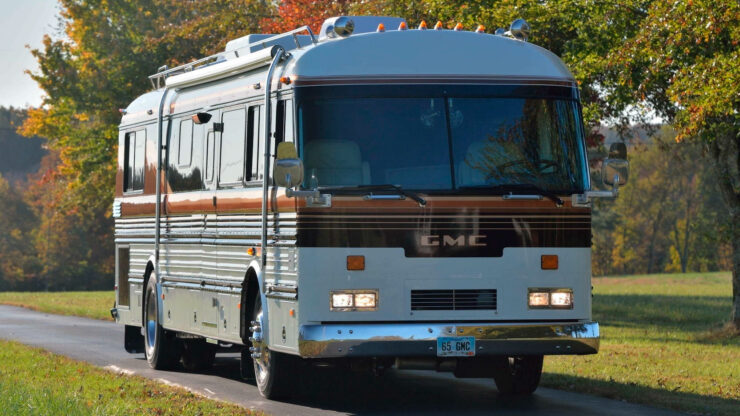
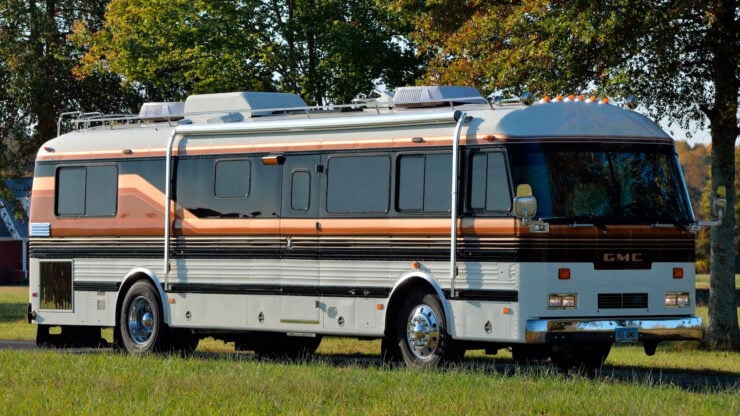
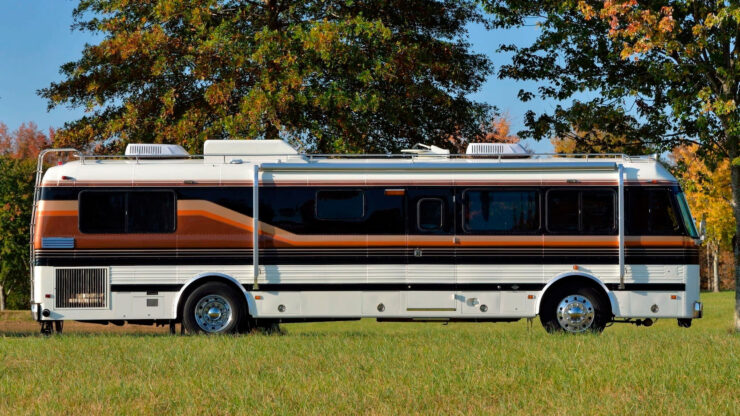
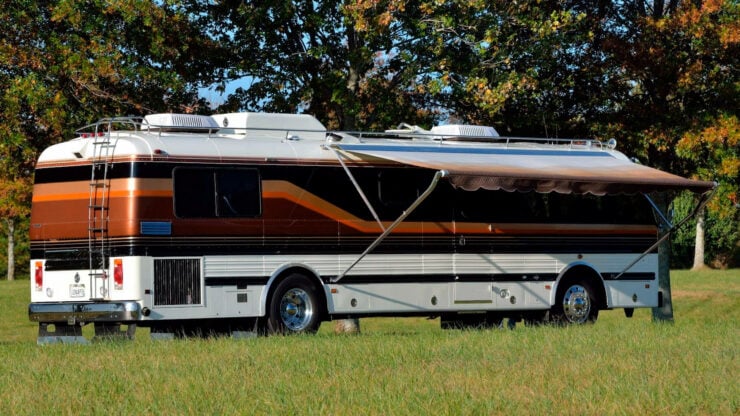
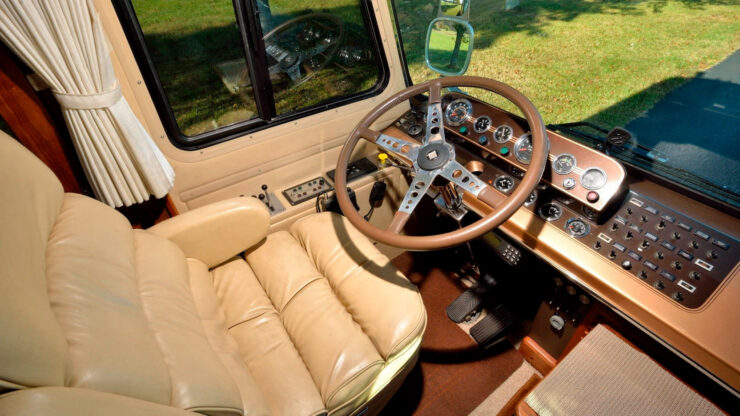
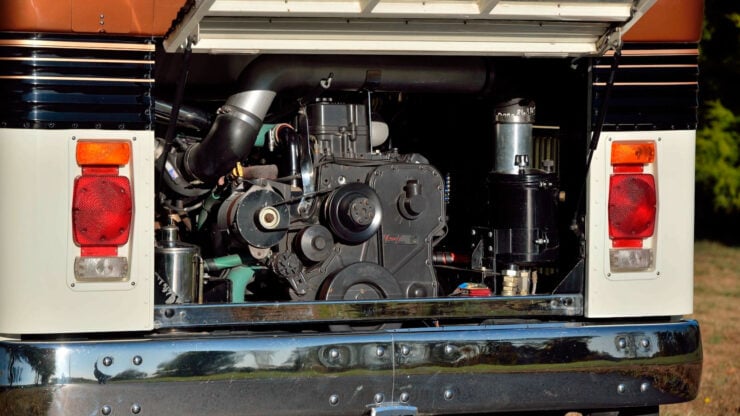
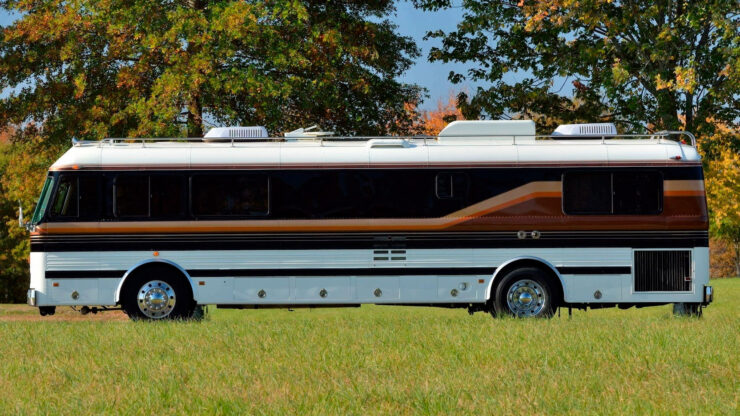
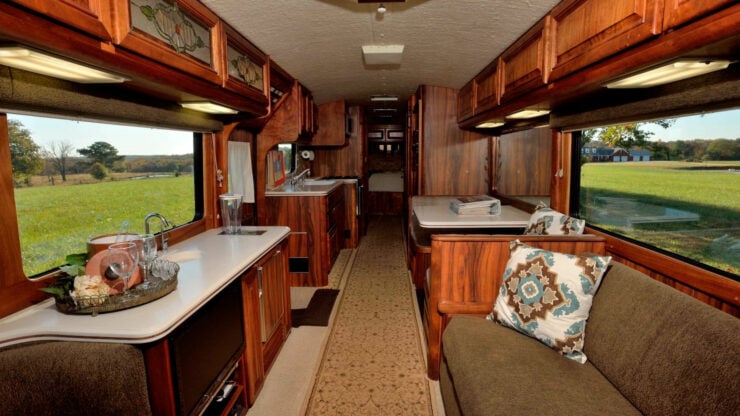
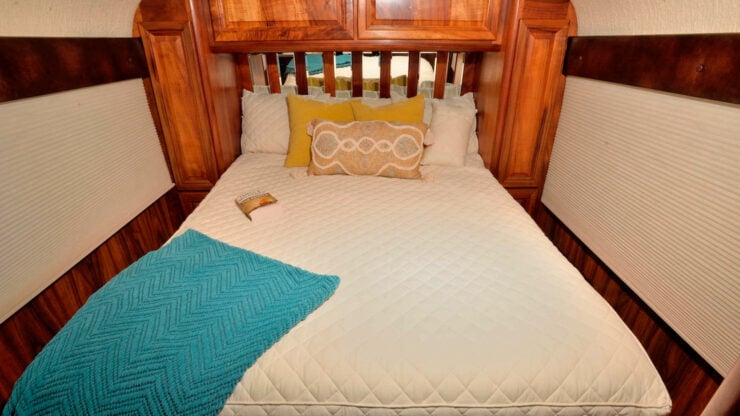
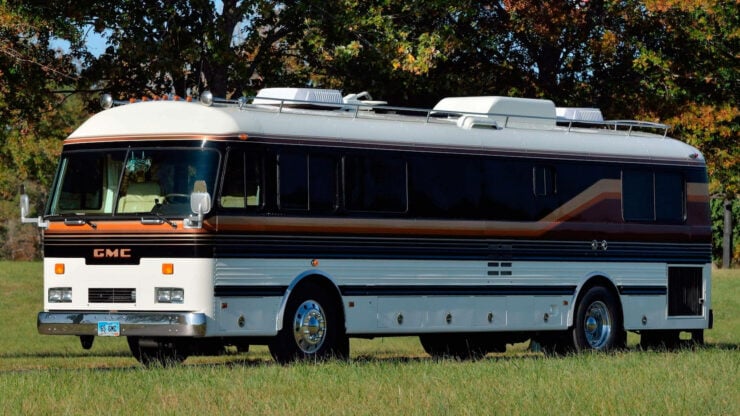
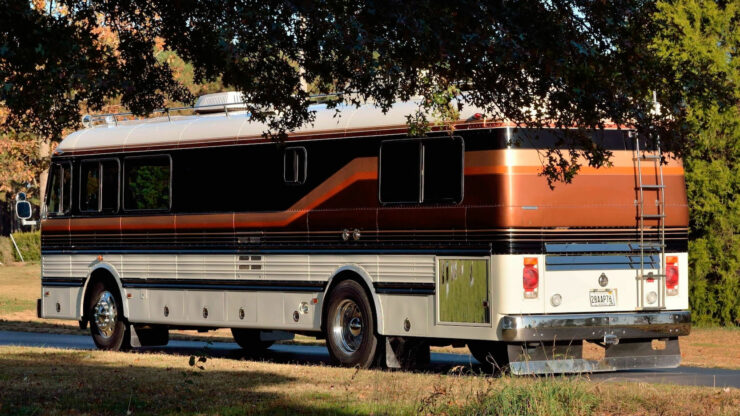
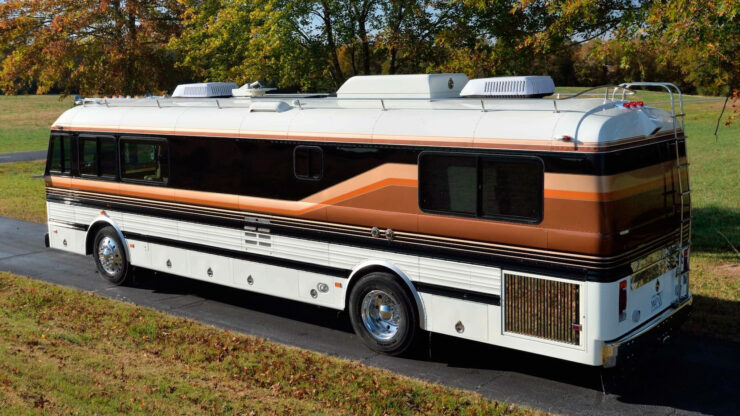
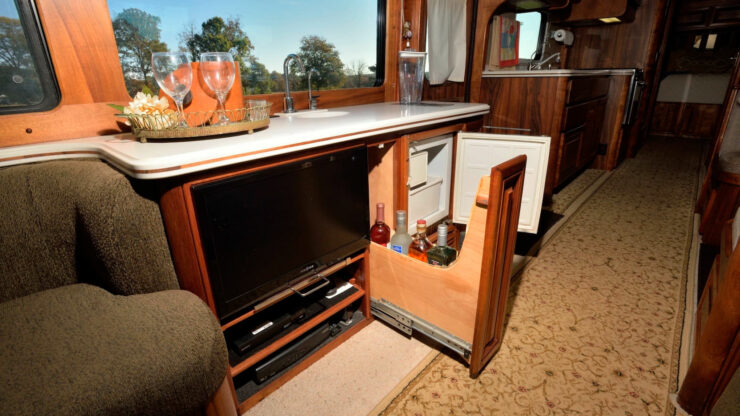
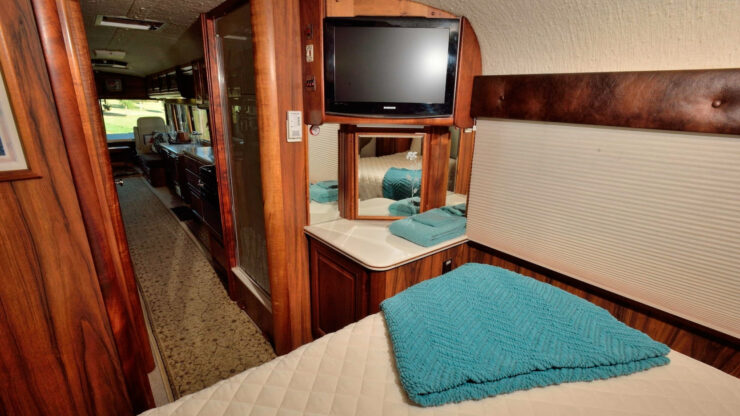
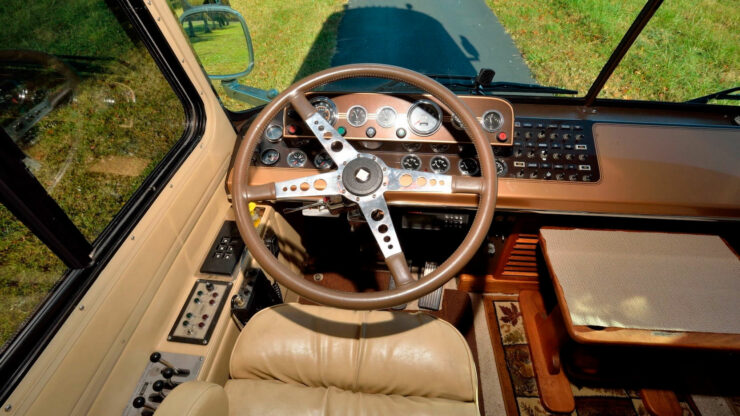
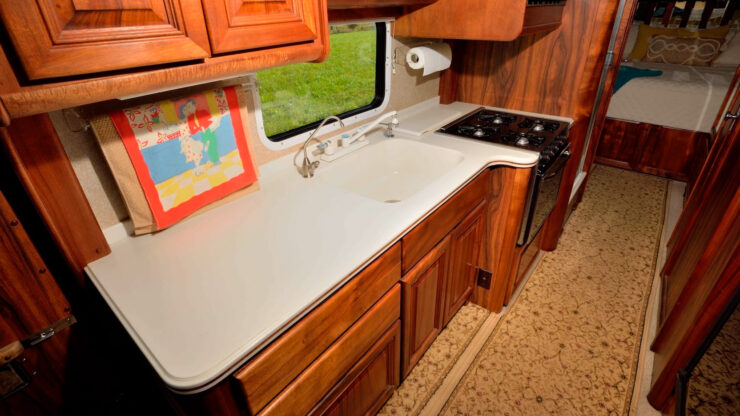
Images courtesy of Mecum

